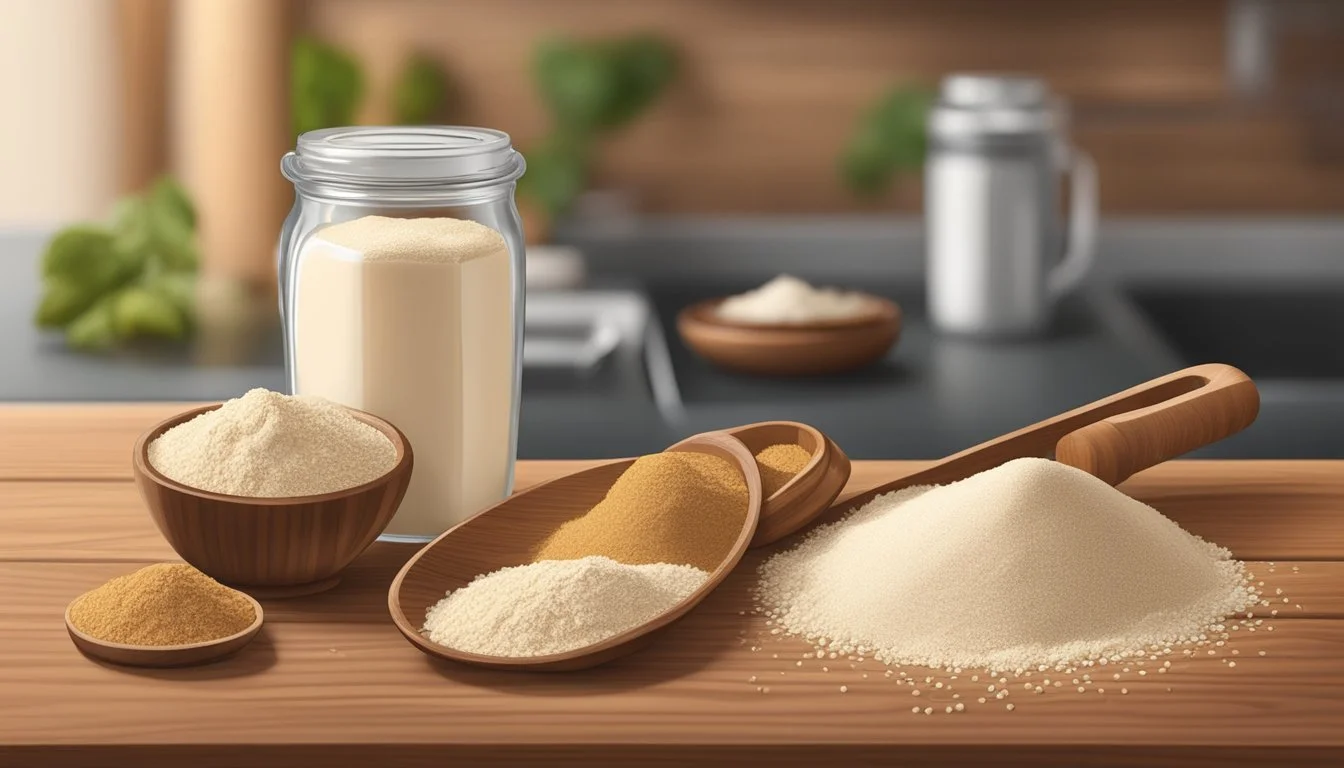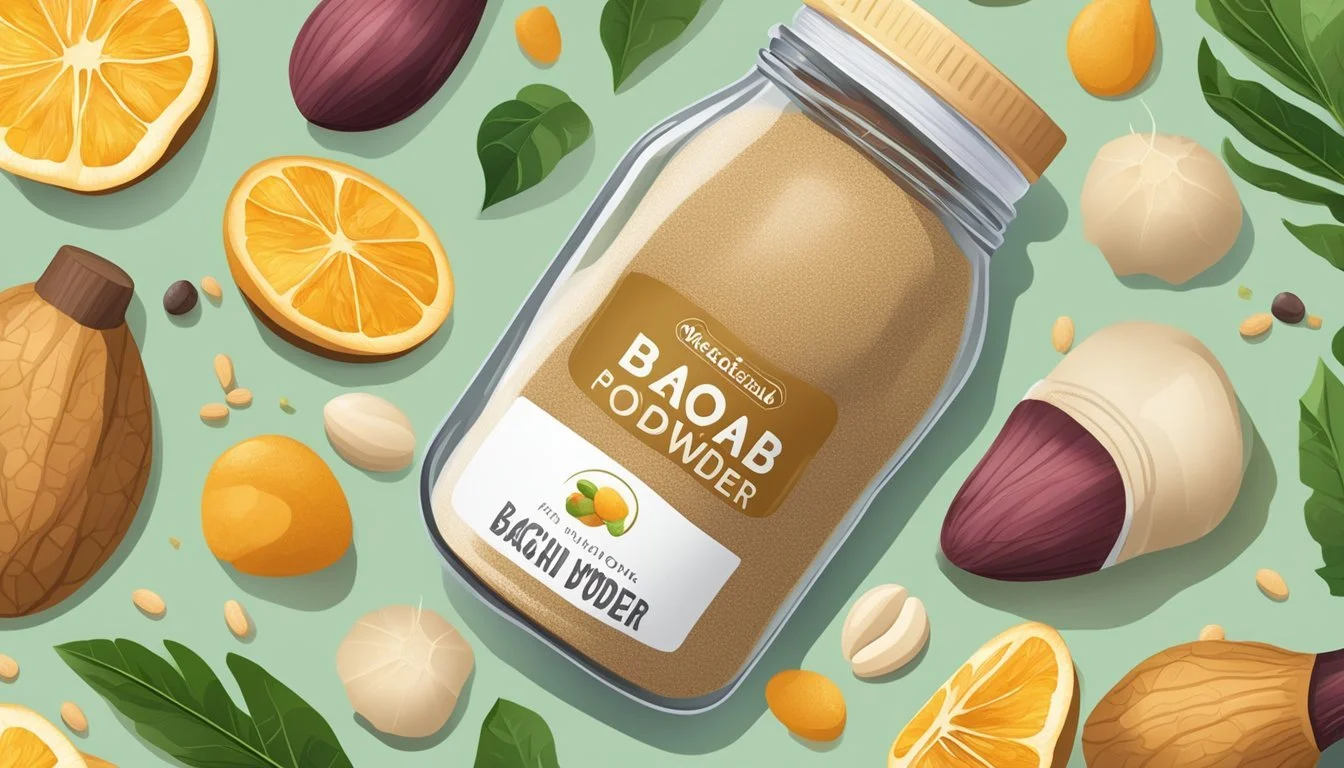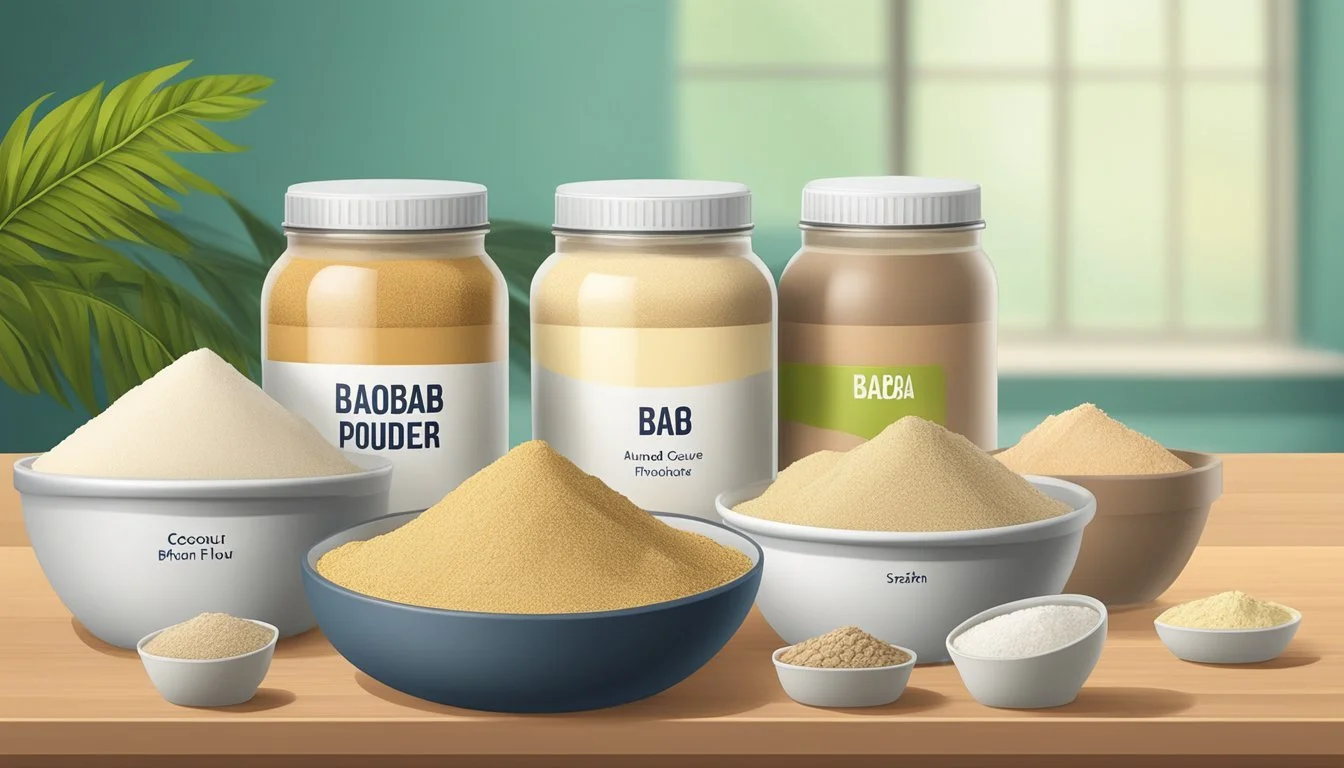Baobab Powder Substitutes
Best Alternatives for Baking and Cooking
Finding suitable substitutes for baobab powder can be essential for those who enjoy its unique health benefits but cannot always find it locally. Baobab powder, derived from the fruit of the baobab tree, is known for its impressive nutrition profile. It is rich in vitamin C, calcium, iron, and antioxidants, making it a powerful addition to a healthy diet.
For those looking to replace baobab powder, there are several alternatives. Maca powder, for instance, offers a comparable boost in energy and nutrition and can be used in similar recipes. Camu camu powder is another superfood rich in vitamin C that can substitute well. Additionally, lucuma powder and acai powder provide a similar fiber content, promoting digestive health.
Choosing the right substitute depends on the desired health benefits and flavor profile. Each alternative has its own unique set of nutrients and tastes that can complement different dishes and beverages. By exploring these options, you can continue to enhance your diet even when baobab powder isn't available.
Nutritional Profile
Baobab powder is a nutritional powerhouse offering a range of essential vitamins, minerals, and other nutrients. This section breaks down the key components and their benefits to help understand the comprehensive nutrition that baobab powder provides.
Vitamins and Minerals
Baobab powder is rich in Vitamin C, containing up to 10 times more per gram than oranges. This potent antioxidant supports the immune system, promotes collagen production, and aids iron absorption.
In addition to Vitamin C, baobab powder contains important minerals such as Calcium, Iron, Potassium, Magnesium, Zinc, and Phosphorus. These minerals are crucial for bone health, blood production, muscle function, enzyme activity, and overall cellular health. Despite its nutrient density, it is low in fat, making it a healthy addition to various diets.
Fiber Content
Baobab powder is an excellent source of dietary fiber, with 100 grams providing around 44.5 grams of fiber. This fiber includes both soluble and insoluble types, which are beneficial for digestive health.
Soluble fiber in baobab powder acts as a prebiotic, feeding the beneficial bacteria in the gut and improving digestive health. This contributes to a healthy gut microbiota, aiding in digestion and preventing digestive disorders. High fiber content can also help manage blood sugar levels and support heart health by reducing cholesterol levels.
Antioxidant Properties
Baobab powder is packed with antioxidants, including polyphenols that fight oxidative stress and have anti-inflammatory properties. These antioxidants neutralize free radicals, reducing the risk of chronic diseases and supporting overall health.
The high concentration of polyphenols and other antioxidants in baobab powder plays a vital role in promoting immune function and protecting the body against inflammation. This nutrient-rich profile makes baobab powder an effective natural supplement to combat oxidative damage and maintain a balanced immune response.
Macronutrients
In terms of macronutrients, 100 grams of baobab powder provides approximately 250 calories, 4 grams of protein, less than 1 gram of fat, and 80 grams of carbohydrates. This makes it energy-dense and suitable for those looking to increase their nutrient intake without excessive fat consumption.
The carbohydrates found in baobab powder are a mix of sugars and fiber, providing sustained energy and promoting satiety. The protein content, although modest, contributes to muscle repair and growth. The low fatty acid content ensures that it can be incorporated into various dietary plans without significantly increasing fat intake.
Health Benefits
Baobab powder, derived from the baobab fruit, is renowned for its extensive health benefits. These advantages range from enhancing digestive health to bolstering the immune system. Below, each aspect is examined in detail.
Digestive Health
Baobab powder is rich in dietary fiber, essential for maintaining a healthy digestive system. The fiber content aids in preventing constipation and promoting regular bowel movements. It also possesses prebiotic properties that support gut health by fostering beneficial gut bacteria.
For individuals experiencing diarrhea, baobab can help balance the gut environment. Its soluble fiber absorbs water, which can help form stools that are easier to pass. Overall, incorporating baobab powder into the diet can lead to improved digestive health.
Immune System Support
Baobab powder is a potent source of Vitamin C and antioxidants. Vitamin C is crucial for the immune system, as it stimulates the production and function of white blood cells. This helps the body fend off infections and illnesses.
The antioxidants in baobab help protect the body from harmful free radicals. These substances can cause cellular damage and contribute to chronic diseases. Regular consumption of baobab powder can thus aid in reducing inflammation and enhancing immune defense.
Baobab Powder in the Diet
Baobab powder can be integrated into various recipes to enhance nutritional intake. It can be added to smoothies, oatmeal, yogurt, and baked goods. With its slightly tangy flavor, it complements both sweet and savory dishes.
Nutritionists often recommend baobab as a convenient way to increase fiber and vitamin C intake. Since the FDA recognizes baobab as Generally Recognized as Safe (GRAS), it’s a versatile and beneficial addition to any diet.
Substitute Options
For those looking for alternatives, there are several superfoods with similar nutritional benefits. Camu Camu and acerola cherries are rich in Vitamin C, while chia seeds and flaxseeds offer high fiber content.
Incorporating these alternatives can provide comparable health benefits, especially for improving digestion and supporting the immune system. These substitutes also blend well in various dishes, providing flexible options for those seeking variety in their diet.
Practical Considerations
When choosing baobab powder or its substitutes, it’s essential to consider the source and quality. Opting for organic and minimally processed products ensures the highest nutritional value.
Reviewing nutrition facts labels can help consumers make informed choices. Consulting a nutritionist can also provide personalized advice based on individual dietary needs and health goals. Adhering to these practices can maximize the health benefits of baobab and its alternatives.
Conclusion
Baobab powder serves as a nutrient-dense superfood, but various substitutes can also provide essential health benefits. Substitutes like acai powder, maca powder, and moringa powder offer similar nutritional profiles.
Each of these superfoods packs antioxidants and dietary fiber that support overall health.
Acai powder contains high levels of antioxidants, which help combat oxidative stress. Similarly, maca powder is known for its potential to enhance energy and vitality.
Moringa powder is rich in vitamins and minerals, making it a strong alternative. Both baobab and these substitutes provide potential health benefits, ranging from improved digestive health to boosted immune function.
Nutrition Facts Comparison:
Nutrient Baobab Powder Acai Powder Maca Powder Moringa Powder Vitamin C High Moderate Low Moderate Dietary Fiber High Moderate High High Antioxidants High Very High Moderate High Minerals Rich in calcium Rich in potassium Rich in iron, copper Rich in iron, calcium
The versatility of baobab powder and its substitutes makes them excellent additions to smoothies, baked goods, and other dishes. For those seeking to diversify their intake of nutrient-rich foods, these alternatives provide robust options.




